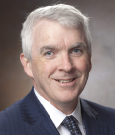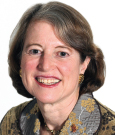In the fall of 1994, 40-year-old Kenneth B. Schwartz, a health-care lawyer, was diagnosed with lung cancer. Radiation and chemotherapy failed to stop progression of the disease, and 10 months later he died. During his treatment, Mr. Schwartz wrote about the ordeal of coming to grips with the inevitability of his fate in The Boston Globe Magazine.1 He also wrote about the gratitude he felt toward his oncologist, Thomas J. Lynch, Jr, MD, as well as the nurses and other medical staff that cared for him and showed him such compassion while he was being treated at Massachusetts General Hospital (MGH) in Boston.
“These acts of kindness—the simple human touch from my caregivers—have made the unbearable bearable,” wrote Mr. Schwartz.
Patient-Caregiver Connection
The article became a blueprint for the creation in 1996 of the Schwartz Center for Compassionate Healthcare, a nonprofit organization designed to strengthen the relationship between patients and their health-care providers. The following year the Schwartz Center launched the Schwartz Center Rounds at the MGH Cancer Center. The program is dedicated to improving communication between patients and their professional caregivers and providing emotional support to every member of the medical team, including physicians, nurses, social workers, psychologists, physical therapists, and chaplains. Today, more than 350 health-care facilities nationwide—including 40 cancer centers—have implemented Schwartz Center Rounds programs in their institutions.
In contrast to the traditional medical, morbidity and mortality, or ethics rounds, which focus on medical problems, clinical strategies, or ethical issues, Schwartz Center Rounds sessions provide a forum for medical personnel to discuss the social, emotional, and interpersonal issues they experience caring for patients.
“The goal of the Rounds is to get doctors and other medical caregivers to focus on the connection between patients and their professional caregivers,” said Dr. Lynch, a cofounder of the Schwartz Center for Compassionate Healthcare, and now Director of Yale Cancer Center and Physician-in-Chief of Smilow Cancer Hospital at Yale–New Haven in Connecticut.
“Most people go into medicine because they enjoy people and they want to help them,” he continued. “But there are so many stressors in our system that try to wring out that essential humanity and minimize the importance of it. The Rounds is all about bringing that connection between the patient and caregiver back to the center of the work we do all day, and that’s important.”
Improved Teamwork
Established at Yale Cancer Center in 2006, Dr. Lynch said the Rounds program draws between 60 and 100 clinical staff members to each of its 11 1-hour sessions held throughout the year. After listening to a presentation on a specific patient case or topic, audience members are encouraged to share their perspectives on the case as well as broader related issues and concerns.
“The program has been instrumental in breaking down traditional role barriers between doctors and nurses and other staff members and gives each of the different caregivers a window into the professional lives of their colleagues,” said Dr. Lynch.
That insight is resulting in improved teamwork, increased understanding of the nonclinical aspects of patient care, and greater emotional support in the institutions implementing the programs. In a survey2 of medical personnel conducted by the Goodman Research Group and published in 2008:
93% of respondents said Rounds gave them a better appreciation for the roles and contributions of their colleagues
90% reported better communication with their coworkers about nonclinical aspects of care
86% said they were more focused on the effects of illness on patients’ lives
84% felt more compassionate toward patients and their families
76% reported feeling less alone in their work with patients
“Our survey showed that after participating in Rounds for a while, medical staff from every discipline felt better able to communicate with patients and families, gained new ideas about how to handle difficult patient situations, and felt less stressed and burned out,” said Marjorie Stanzler, Senior Director of Programs and a cofounder of the Schwartz Center for Compassionate Healthcare.
Another positive outcome of the Rounds, according to Ms. Stanzler, was that some institutions changed policies or practices to make care more patient-centered. “The most commonly cited change was that clinicians began referring patients earlier and more often to palliative care,” said Ms. Stanzler.
Bringing the Program to Your Institution
Institutions interested in establishing the Schwartz Center Rounds must first become a member of the Schwartz Center for Compassionate Healthcare and sign a letter of agreement detailing both the institution’s and the Schwartz Center’s responsibilities in conducting the program. For more information, visit www.theschwartzcenter.org. ■
Disclosure: Dr. Lynch and Ms. Stanzler reported no potential conflicts of interest.
References
1. Schwartz KB: A patient’s story. Boston Globe Magazine, July 16, 1995.
2. Lown BA, Manning CF: The Schwartz Center Rounds: Evaluation of an interdisciplinary approach to enhancing patient-centered communication, teamwork, and provider support. Acad Med 85:1073-1081, 2010.



